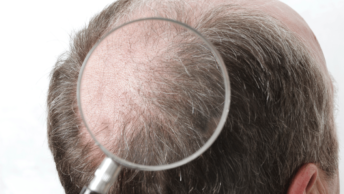Maintaining good hearing health is essential for our overall well-being and quality of life. Our ability to hear plays a crucial role in communication, social interaction, and our perception of the world around us. However, like any aspect of our health, our hearing can be affected by various factors, including age, genetics, exposure to loud noise, and underlying medical conditions. To ensure that our auditory system is functioning optimally and to address any potential issues early on, it’s important to undergo regular hearing health checks. In this comprehensive guide, we’ll delve into the details of what to expect from a diagnostic hearing test, from the initial assessment to the interpretation of results and follow-up recommendations.
Importance of a Hearing Health Check
Hearing loss is a common yet often undetected condition that can have significant implications for our daily lives. Whether it’s difficulty following conversations, missing out on important sounds, or experiencing ringing in the ears (tinnitus), hearing loss can impact our ability to communicate effectively and participate fully in social and professional activities. By undergoing regular hearing health checks, we can detect any changes in our hearing ability early on, allowing for timely intervention and management.
Prevention of Further Damage
In many cases, hearing loss is gradual and may go unnoticed until it reaches a more advanced stage. However, by detecting hearing loss early, we can take proactive steps to prevent further damage and preserve our remaining hearing ability. This may involve implementing strategies to protect our ears from loud noise, such as using earplugs or limiting exposure to noisy environments. Additionally, addressing any underlying medical conditions or lifestyle factors that may be contributing to hearing loss can help minimize its progression.
Improvement of Communication
Effective communication is essential for maintaining relationships, succeeding in the workplace, and engaging with the world around us. Hearing loss can significantly impact our ability to communicate, leading to frustration, isolation, and decreased quality of life. By addressing any hearing difficulties through a diagnostic test, we can identify strategies and interventions to improve our communication skills and enhance our overall well-being.
Preparing for Your Hearing Health Check
The first step in undergoing a hearing health check is to schedule an appointment with a qualified audiologist or hearing care professional. When choosing a clinic or healthcare provider, it’s important to consider factors such as their expertise, reputation, and the availability of advanced diagnostic equipment. You may also want to inquire about any specific services or specializations offered, particularly if you have unique hearing test needs or concerns.
Medical History and Symptoms
Before your appointment, you may be asked to provide information about your medical history and any symptoms or concerns you have regarding your hearing. This may include details about any previous hearing tests or evaluations, as well as any medications you are currently taking or medical conditions you have been diagnosed with. Providing accurate and thorough information will help the audiologist tailor the test to your specific needs and concerns, ensuring that you receive the most appropriate care.
Arranging Accompaniment
If you’re experiencing significant hearing difficulties or have concerns about understanding the information provided during the test, you may want to consider arranging for a family member or friend to accompany you to the appointment. Having a support person present can help ensure that you feel comfortable and confident throughout the testing process, as well as provide an additional perspective on your hearing health and any recommendations made by the audiologist.
The Diagnostic Hearing Test Process
When you arrive at the clinic for your hearing health check, you’ll be greeted by a member of the healthcare team who will guide you through the process. They will explain the purpose of the test, the equipment that will be used, and what you can expect during the appointment. This initial introduction is designed to help alleviate any anxiety or apprehension you may have about the testing process and ensure that you feel informed and empowered to participate fully.
Initial Assessment
The audiologist will conduct an initial assessment of your hearing health, which may include asking you about your medical history, lifestyle, and any specific concerns you have regarding your hearing. This information will help guide the diagnostic testing process and provide valuable insights into your overall auditory health. The audiologist may also perform a physical examination of your ears using a tool called an otoscope to check for any visible abnormalities or blockages in the ear canal.
Objective Tests
Objective tests are those that measure the physical function of the auditory system without relying on subjective responses from the patient. These tests provide valuable information about the structure and function of the ear and can help identify any underlying issues that may be affecting your hearing. Common objective tests include:
- Otoscopy: Examination of the outer ear and ear canal using a specialized tool called an otoscope to check for any abnormalities or blockages.
- Tympanometry: Measurement of the movement of the eardrum in response to changes in air pressure, which can help assess middle ear function and detect conditions such as otitis media or eustachian tube dysfunction.
- Acoustic reflex testing: Evaluation of the reflexive contraction of the muscles in the middle ear in response to loud sounds, which can indicate the integrity of the auditory pathway and help identify certain types of hearing loss.
Interpretation of Results
Once the diagnostic tests have been completed, the audiologist will review the results with you and explain what they mean for your hearing health. They will discuss any findings, such as the presence of hearing loss, its degree and configuration, and any underlying causes or contributing factors. The audiologist will also take into account your individual lifestyle, communication needs, and preferences when interpreting the results and making recommendations for further evaluation or management.
End Note
In conclusion, undergoing a diagnostic hearing test is a proactive step towards maintaining good hearing health and addressing any potential issues early on. By understanding what to expect from the testing process and how the results will be interpreted, you can approach your appointment with confidence and clarity. Remember to schedule regular hearing health checks, especially if you notice any changes in your hearing or experience symptoms such as ringing in the ears, difficulty understanding speech, or ear pain. By prioritizing your hearing health and seeking professional care when needed, you can enjoy improved communication, enhanced quality of life, and greater overall well-being. So don’t delay – book your hearing health check today and take the first step towards better hearing!







